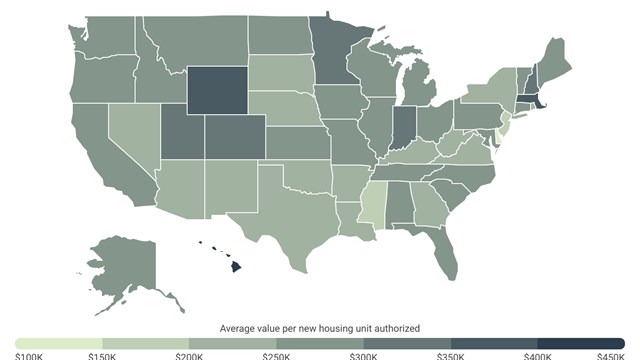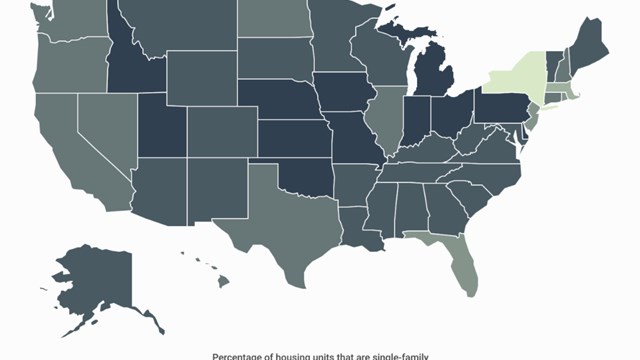Bad economic news is pretty much inescapable these days. You can’t turn on the TV without hearing about another round of layoffs or plummeting consumer confidence. The stock market is a roller coaster, retirement funds are shedding value, the housing market has gone mad and each day seems more uncertain than the last.
Given all that, it’s no surprise that co-ops and condos throughout the five boroughs are taking a new look at the way they do business—and so are the service providers and vendors with whom they work. The signs of changing times have been on the horizon for months now and seem to be growing more prevalent and pervasive.
Signs of Change
“The first spark that caused a lot of our co-op clients to really think about the cost of their buildings and doing business was when oil prices spiked this past summer,” says Manhattan-based attorney Adam Leitman Bailey. “Then doing the year-end financials, they noticed a big decrease in sales and not as much revenue from flip taxes. They started asking themselves, ‘How can we save money and get in better fiscal shape?’”
Mona Shyman, vice president of the Federation of New York Housing Cooperatives & Condominiums (FNYHC), and a management consultant, agrees. “As far as business goes, everyone is looking to save because no one knows what’s going to happen. Boards are being much more careful in how they spend money and how they enter into agreements. Boards are shopping around more before making purchases and making decisions.”
In fact, the recession is affecting how entire industries do business. “The recession has significantly impacted the insurance business for co-ops and condos in many ways,” says Sean Ahern of the firm Jacobson Goldfarb & Scott Inc., in Holmdel, New Jersey. “With the stock market floundering, insurance companies imploding right before our eyes and investment income becoming increasingly elusive, insurance analysts agree the soft market is over.”
What does this mean for policyholders? “Insurance companies nowadays must focus on making profits on the policies they write without the benefit of the additional investment income they’re used to realizing in a growing economy,” says Ahern. “Making money with investments is a major part of how insurance companies work, and in effect the investment income earned offsets premiums which the carriers determine are necessary in order to make a profit. Thus, with investment income down and considering the negative effects of the mortgage crisis and catastrophic storms like hurricanes Katrina, Ike and Gustav, insurers have no choice but to raise premiums to stay profitable and pay claims.”
From a board’s perspective, those rising premiums mean they will likely go shopping for different coverage, seeking to ease their financial commitments. That means fierce competition among insurance vendors and nearly every other business that looks to co-ops and condos for income.
“All clients are discussing how to save money,” Bailey says. “Even Park Avenue co-ops and buildings you wouldn’t think would be considering it are.”
And those boards are looking for savings up and down the balance sheet. “One of my clients started counting the big black garbage bags they use and found out they’ve been getting shorted,” says Shyman. “Boards are being more careful—and they’ve asked their employees to be more careful and watchful, too.”
Even though, as Bailey says, co-ops and condos are as near to recession-proof as they can be considering that everyone needs a place to live, the pros generally agree that this cost-saving mentality is permeating all aspects of how buildings do business. Where buildings can’t negotiate savings—with utility companies, for example—they’re doing small things like changing over to energy-efficient light bulbs or considering the possibility of submetering units in order to get residents to reduce their energy use.
Certain Sacrifices
“There are lots of things that are being done now that should have been done before,” Shyman says. For example, shareholder gatherings that used to offer expansive catered buffets and beverages have become more simple and refreshment-free, saving on catering and food costs.
Boards are more dedicated, too, to bargaining wherever possible with their vendors. “We’ve seen that with oil contracts,” Bailey says.
Sometimes the savings come at a more personal cost. “We’re also seeing staff reductions,” Bailey says. Buildings may not be firing or laying off employees, but many of them are holding off on filling vacant positions or eliminating those positions altogether.
Supply-Side Perspective
Service providers and vendors are also looking at business in a different way, adjusting their past assumptions and methods to suit a new market and new era.
“Insurers are taking harder looks at insureds and prospective insureds,” says Ahern. “Associations that are the best maintained and present the best loss histories will still be able to effectively shop for insurance and negotiate terms and conditions.” Conversely, those associations that may have put off repairs or cut back on maintenance may find themselves in a weak position to argue with a rate increase mandated by their carrier or the insurance market in general.
Many firms are also working harder to keep business and earn new business, sometimes with a serious effect on their bottom line. “People are cutting into their profits to get business,” Shyman says. They know that “someone’s going to come in and undercut them. And people are buying whatever’s being undercut.”
In fact, Shyman says it can be unsettling to watch some firms come in with fiercely reduced leader pricing and edge out a long-time service provider. Then those prices may rise down the road because the new firm simply can’t make a profit at the price at which they’re doing business. “They may be selling a lot of apples, but they’re selling them for less,” Shyman says.
In this economy though, it pays for vendors and service providers to continue offering the best goods and services they can. “If a building’s not getting the quality of material or services they want, they can go on to the next place,” Shyman says.
The New Civility?
One unusual side effect that nearly everyone mentions is the fact that, well, people are being nicer, especially those individuals on the business-seeking side of the equation. “Vendors can’t go on past glory anymore,” Shyman says. “They’re nicer these days.”
Bailey agrees. “Everyone is so nice and respectful now because there’s less work,” he says.
That should not be a new way of doing business, though, Ahern says. “The way to keep customers is always the same, no matter the market. Provide consistent, expert service and advice. Genuinely care about your clients and what they’re going through, and do your best to protect them.”
Boards are also looking out for themselves and the residents they serve, too, looking for new ways to weather this economic storm. That can mean launching new efforts to raise more revenue to cover income lost from the lack of unit sales and loss of flip taxes. “More boards have had to do assessments and rescind tax abatements,” Bailey says. “They’ve raised sublet fees, put cell phone antennas on the roofs, even changed laundry room services to earn more income.”
Common Sense Strategies
They are also turning to experts to help them save money. In terms of insurance, “yes, everyone is looking to save money and that’s where a specialty broker can really make a difference,” Ahern says. “Accessibility to multiple insurers which specialize in community associations is key to keeping costs down. By marketing an association to several carriers through a specialty broker, an association can realize the best price possible.”
Using common sense should be at the top of any board’s strategic plan—as well as that of management, vendors and service providers alike. “When you allocate funds to buy something [for your building—telephone service, for example]—do it as if it’s your own house,” Shyman says. “Don’t buy more for your building than you need right now. There are going to be bargains out there for a long time to come now. Don’t be stocking up, because prices are going to be going down. Just work with the bare minimum right now.”
And vendors need to be cognizant of the types of decisions boards are trying to make on behalf of their residents during these difficult times. “If you want your money to roll, give buildings the cheapest price, but don’t try to push things on them that they don’t need,” Shyman says.
Planning ahead can be key, as is the idea of being consistent and not just reacting to shocks in the market. “All year long, we’re working to save our clients money,” Bailey says. “There’s no reason to hire someone without making sure you’re getting the best deal.”
Part of that advice these days includes saving for a rainy day. “We’re recommending our clients have larger reserves on hand,” Bailey says. And he suggests they not be afraid of pushing to get what they want. “Try asking for a little more when they request something.” In this climate, a simple request can yield substantial results.
Ultimately, both boards and the companies that serve them just need to hold on and realize we’re all in this together. “Nobody has a guarantee in this life,” Shyman says.
Adds Bailey, “It’s a whole new world and we need to act like it.”
Liz Lent is a freelance writer, teacher, and a frequent contributor toThe Cooperator.







Leave a Comment